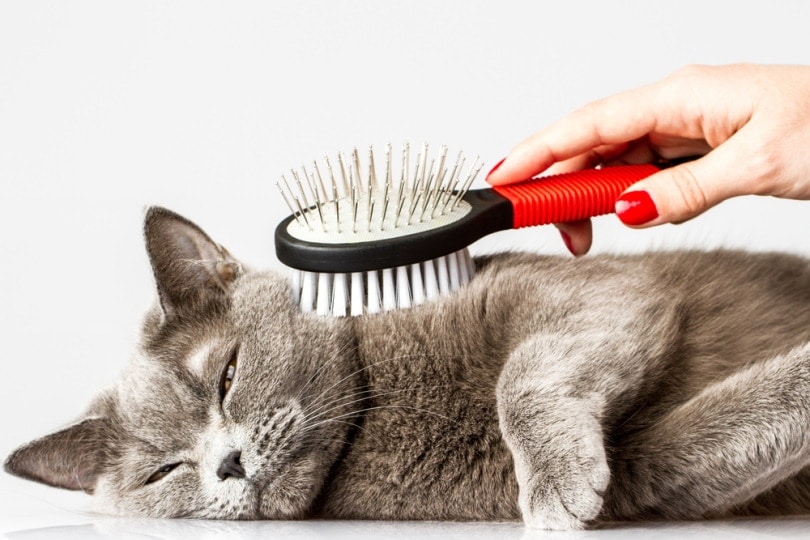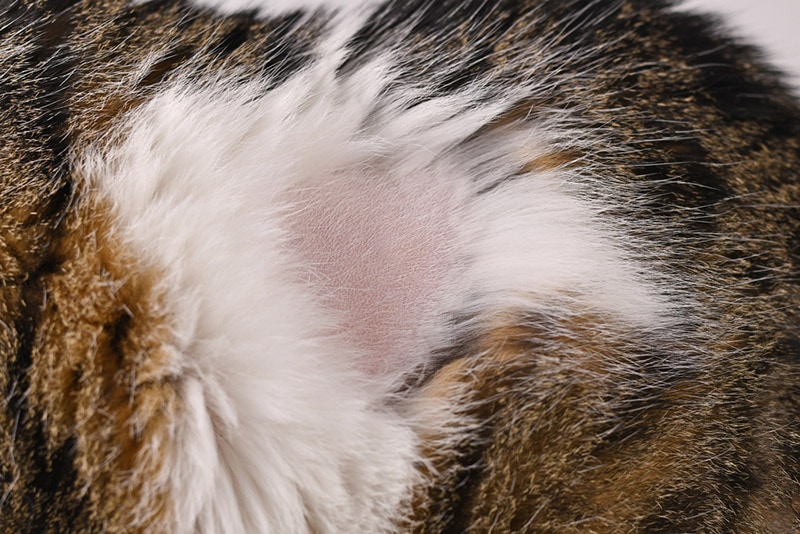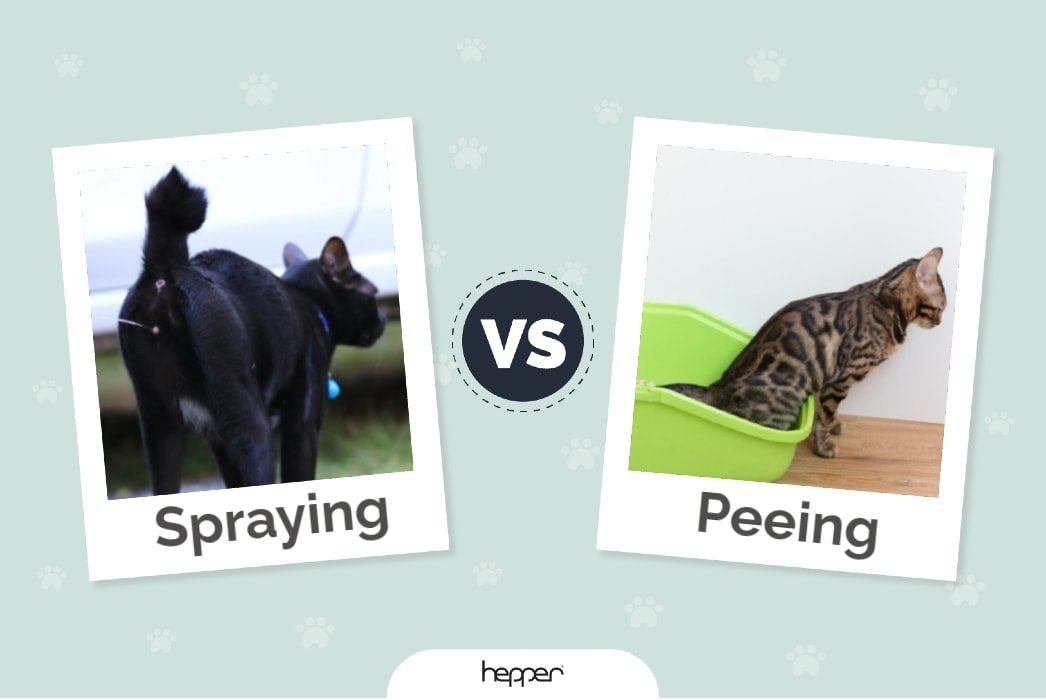Are Air Plants Toxic to Cats? Vet-Approved Health Facts

Updated on
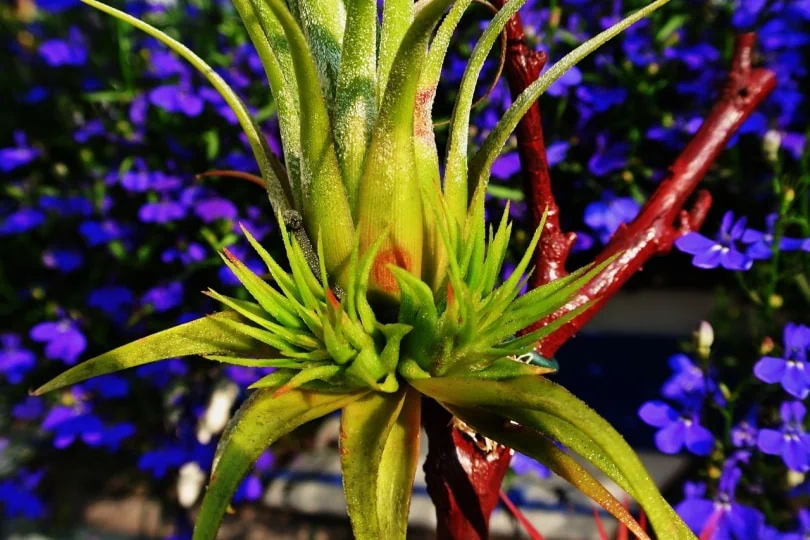
Houseplants are a lovely addition to your home or office, but some of them can be toxic to pets. Many popular plants people often buy to have in rooms, including the poinsettia and peace lily, can be fatal to pets.
Tillandsia is an air plant, a popular, low-maintenance houseplant that comes in many striking varieties. But are air plants toxic to cats? Fortunately, over 500 varieties of air plants are non-toxic for cats.
Your curious cat could be a hazard to your tillandsia. Read on to learn more.
All About Air Plants
When most people refer to an air plant, they’re talking about a tillandsia. Part of the bromeliad family, these eye-catching plants come in many attractive varieties and have low-maintenance care needs, making them appealing to homeowners and apartment dwellers.
Tillandsias are evergreen, perennial flowering plants native to the forests, mountains, and deserts of the southeastern U.S., northern Mexico, Mesoamerica, and the Caribbean.
These plants are epiphytes, which means they use surrounding plants or structures to support them. They’re not parasitic like mistletoe; however, they get their sustenance from the atmosphere around them.
Of its hundreds of varieties, the tillandsia plant almost always has small but attractive blooms. Many species have thin, stiff leaves with scales and a grayish-green appearance. They can be fluffy, round, spiky, shiny, fuzzy, or dangling.
Because these plants anchor to surrounding objects, rather than soil, they can grow on or in creative surfaces. For example, many people keep air plants in suspended glass globes or in a shallow dish with pebbles. This versatility is part of their appeal.
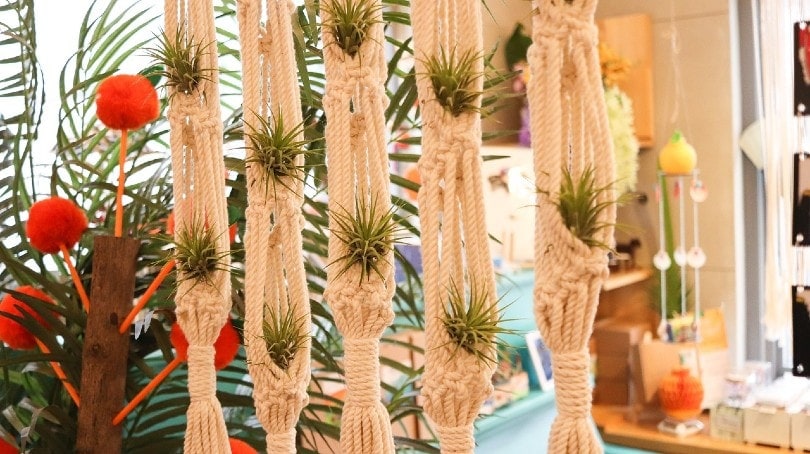
Precautions for Tillandsia and Cats
Part of the concern surrounding tillandsia and cats is that it’s often kept with moss, which is also an epiphyte. Some mosses contain trace amounts of poisonous substances derived from the soil, but it’s usually not in a high enough concentration to harm a cat.
If your cat does happen to nibble on the plant or surrounding moss, it may experience some digestive issues, like vomiting and diarrhea. This should pass. But if you have concerns, make sure to have them evaluated by a veterinarian.
Protecting Your Air Plant from Your Cat
Cats like to explore the world around them, which may lead to some nibbling or damage to your tillandsia plant. While your cat should be okay, your plant may need some time to heal.
If you notice your cat has chewed on your tillandsia plant, remove any broken or damaged leaves to help it heal. Air plants are hardy, but they can be easily damaged by a rambunctious cat. Be sure to keep your tillandsia out of reach of your cat and other pets.
You can keep it on a high shelf out of reach, or within a terrarium that has adequate airflow. Hanging terrariums are popular for their aesthetic value. They’re also perfect for nurturing a tillandsia and keeping it away from destructive pets.
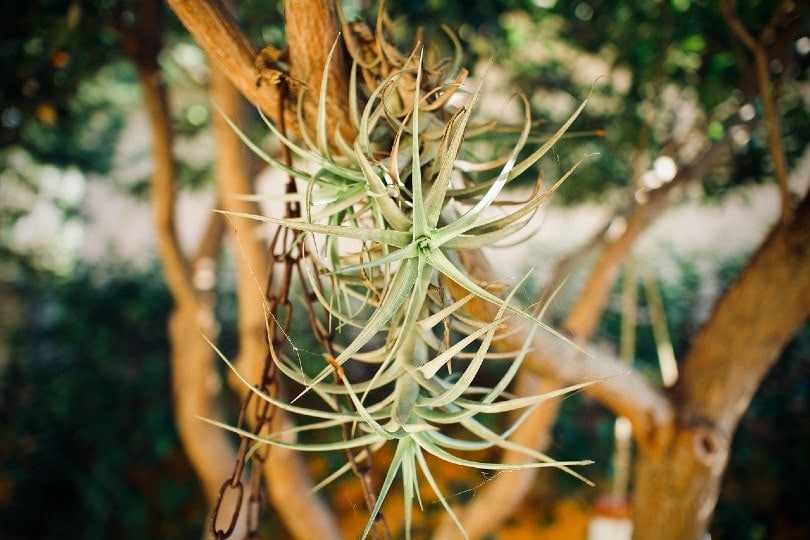
Toxic Plants for Cats
The air plant may be safe for cats, but plenty of common houseplants are not. Depending on the level of toxicity, some plants can cause problems whether your cat has a nibble, touches a leaf, or eats the entire thing.
Here are some common plants that are toxic for cats:
- Autumn crocus
- Amaryllis
- Azalea
- Bird of Paradise
- Daffodil
- Dracaena
- Eucalyptus
- Ficus
- Gladiolas
- Honeysuckle
- Hyacinth
- Hydrangea
- Iris
- Morning glory
- Oleander
- Philodendron
- Rhododendron
- Pothos
- Tulip
- Wisteria
- Most lily varieties
It’s best to avoid keeping these plants in your home or garden if you have cats. Instead opt for a non-toxic option, like air plants.
Conclusion
Air plants, or tillandsia, are hardy, low-maintenance plants that are perfect for terrariums or creative indoor foliage. Unlike many commonly kept houseplants, air plants are generally safe for cats, even if they take a nibble or two.
Featured Image Credit: PublicDomainPictures, Pixabay



